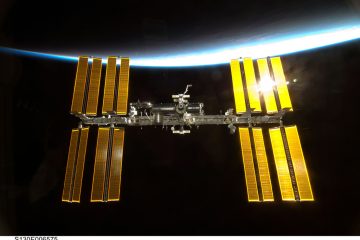
US Space Policy and Strategic Culture
The United States has a consistent Strategic Culture, centered on a sense of exceptionalism, values-driven foreign policy, casualty aversion, as well as strong leadership. These features reflect in its space policy and ambitions, where the US has cooperated with other nations but assumes a position of natural leader. It remains to be seen how this role will evolve – although the sense of exceptionalism may endure – as new actors, including private companies, make their way into space. Why Strategic Culture Matters Developed in the 1970s, “Strategic Culture” is a concept used to analyze the role of culture and national idiosyncrasies in shaping national security decisions. As with many paradigms developed during the Cold War, it emerged in the context of …

Repercussions on the Opposite Side of the World: Why the Cambridge Analytica Scandal matters for Australia
Recent revelations about the alleged misuse of the personal data of millions of Facebook users have dominated international headlines. Reportedly, Cambridge Analytica exploited loopholes in Facebook’s privacy settings to create psychometric profiles for targeted political influence campaigns. Thus far, available evidence suggests that the firm was active all over the globe, but not directly involved in Australian politics. So, why has the Cambridge Analytica scandal got alarm bells ringing, on the opposite side of the world, in Canberra? To understand the significance these events for Australia, one must understand our geopolitical position in the Pacific. Australia has long thought of itself as the United States’ younger sibling. In 2003, US President George Bush memorably labelled Australia America’s “deputy sheriff” and …
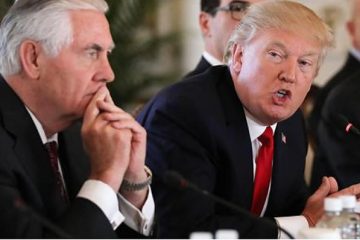
Trump & Tillerson: The End of a Rocky Relationship
In yet another major shake up of his administration, Trump, via Twitter, has declared that he will be replacing Secretary of State Rex Tillerson after only fourteen months, the shortest occupation of the position in modern history. Tillerson will be replaced by CIA Director Mike Pompeo after months of both public and private disputes between the former head of Exxon Mobil and the US President. Administration officials have claimed Tillerson was unaware of his imminent release, allegedly learning only briefly of his impending firing. For those who have been keeping up to date with the inner machinations of the controversial administration, it is concurrently unsurprising that Tillerson has met this fate, and surprising that it has taken this long. The …

The Trump-Kim Summit: Three Reasons Why We Got This Far
Donald Trump surprised the world by accepting an invitation to meet with North Korea’s leader Kim Jong-un. The announcement came unexpectedly, after more than a year of rising tensions between the United States and North Korea over the latter’s nuclear programme. What are the reasons for this diplomatic about-face? We can identify three reasons that have led to this development. The first is North Korea’s long-standing desire of building bilateral negotiations with the United States. The second reason is President Trump’s preference for personal and unconventional diplomacy. Finally, South Korea’s mediating role under the Moon administration has created the conditions to reopen diplomatic contacts between the two opponents. North Korea’s Quest for US Recognition Although North Korea has repeatedly threatened …
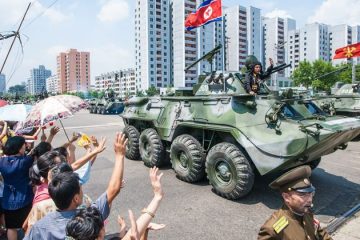
Is North Korea Really that Crazy?
Over the last months, the escalating tensions between the United States and North Korea over the latter’s nuclear programme have dominated news headlines. US President Donald Trump has called North Korean leader Kim Jong-Un “rocket man” in front of the United Nations, labelled him crazy and insane, and stated he was willing to halt Kim’s pursuit of nuclear weapons by all means, while North Korea labelled Trump a “dotard.” Not everyone might like Trump’s colourful rhetoric, but his remarks strike a chord with many. The Democratic People’s Republic of Korea (DPRK), or North Korea, threatens to turn Seoul into “a sea of fire” and to destroy the United States. Repeated rockets launched towards Japan seem like a preamble to a …
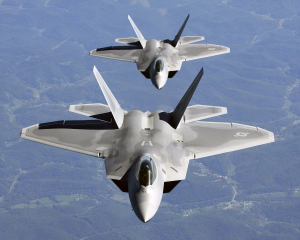
The legality of military action in Syria: humanitarian intervention and the responsibility to protect
It now seems fairly clear that the US and the UK are set to take military action in Syria in the coming days in response to the recent chemical attacks there. The UK Prime Minister, UK Foreign Secretary and the UK Secretary of State for Defence have all asserted that any action taken in Syria will be lawful. But on what grounds will military action in Syria be lawful. As is well known, United Nations Charter prohibits the use of force in Art. 2(4), as does customary international law. The UN Charter provides 2 clear exceptions to the prohibition of the use of force: self defence and authorization by the UN Security Council. It is almost certain that there will be no Security Council authorization. In a previous post, I considered the possibility of a (collective) self defence justification for the use of force in response to a use of chemical weapons. The scenario contemplated then is very different from the situation that has emerged, and the language used, at least by the UK, does not hint at a use of force on the basis of national interest. However, President Obama in a CNN interview last week did seem to speak of self defence when he said “there is no doubt that when you start seeing chemical weapons used on a large scale … that starts getting to some core national interests that the United States has, both in terms of us making sure that weapons of mass destruction are not proliferating, as well as needing to protect our allies, our bases in the region.” A justification for force on this basis would sound like preemptive self defence in a way that is very close to the Bush doctrine. I find it hard to see the Obama administration articulating a legal doctrine of preemptive self defence claim in this scenario.
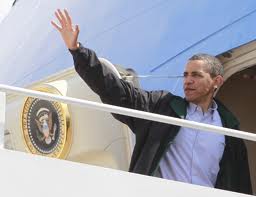
Flyover: Why Europe is no longer a top destination for Air Force One
After fresh re-election, Barack Obama skipped Europe. And no one is surprised. Instead, he made his first foreign trip to Burma (Myanmar), Cambodia and Thailand, thus clearly indicating the priorities of US foreign policy in the next four years.

The Best Defence is Dialogue
The recent visit to Beijing by the U.S. secretary of defense, Leon Panetta — which coincided with State Department statements that the U.S.-Japan security treaty would apply to the disputed Senkaku Islands — highlights the growing tension with China over America’s military presence in Asia, Chinese efforts to counteract it, and the dangerous misperceptions that can arise if defense strategy gets in the way of diplomacy.









